Abstract
In this study, information about both counselee and counselor performance was obtained from taped recordings of 193 structured counseling sessions with persons diagnosed as having sickle cell trait. The data provide evidence that: (1) lay persons can understand essential sickle cell information; (2) trained lay persons using a structured format can transmit successfully sickle cell information; (3) only education and age, among counselee characteristics studies, were related to successful learning; (4) the evaluation of information transfer in counseling programs cannot be limited to counselees' comprehension but must also consider other variables such as counselor performance and curriculum content; (5) a reduction in negative feelings associated with a diagnosis of sickle cell trait is an immediate effect of counseling; and (6) audio-taping of counseling sessions is client acceptable and useful for evaluation, quality control, and counselor training.
Full text
PDF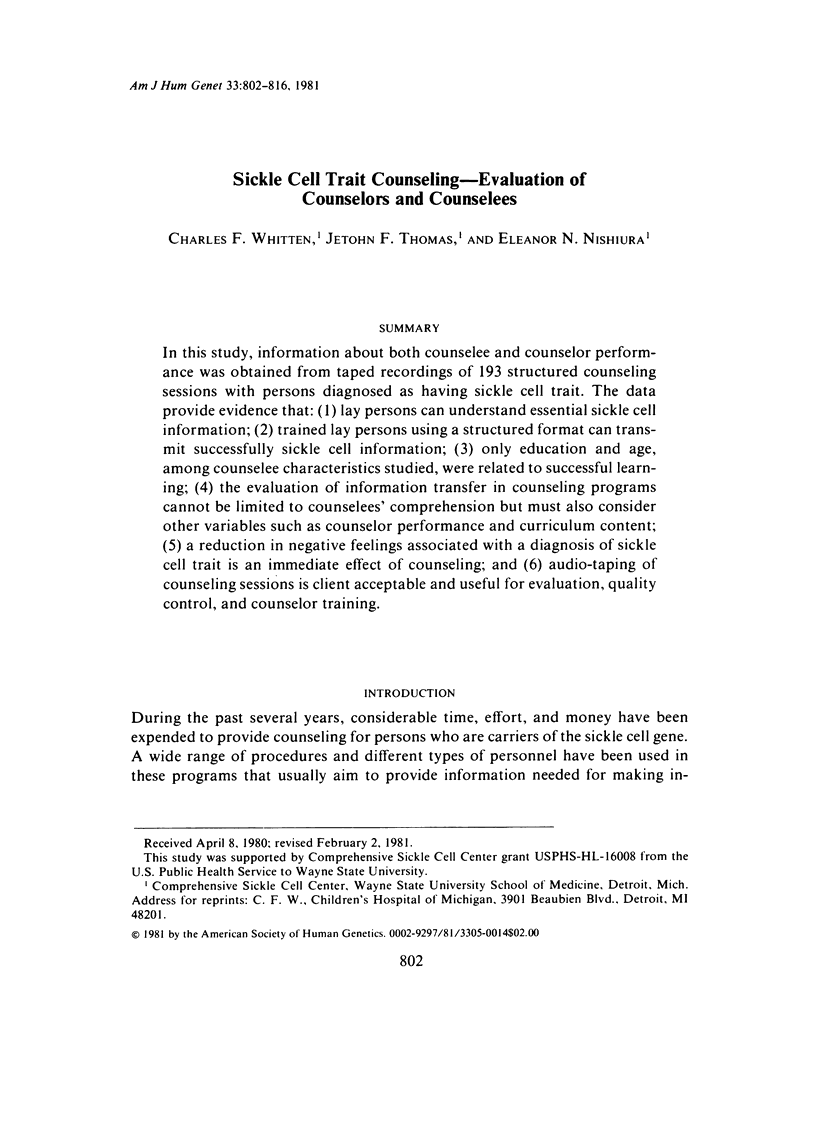
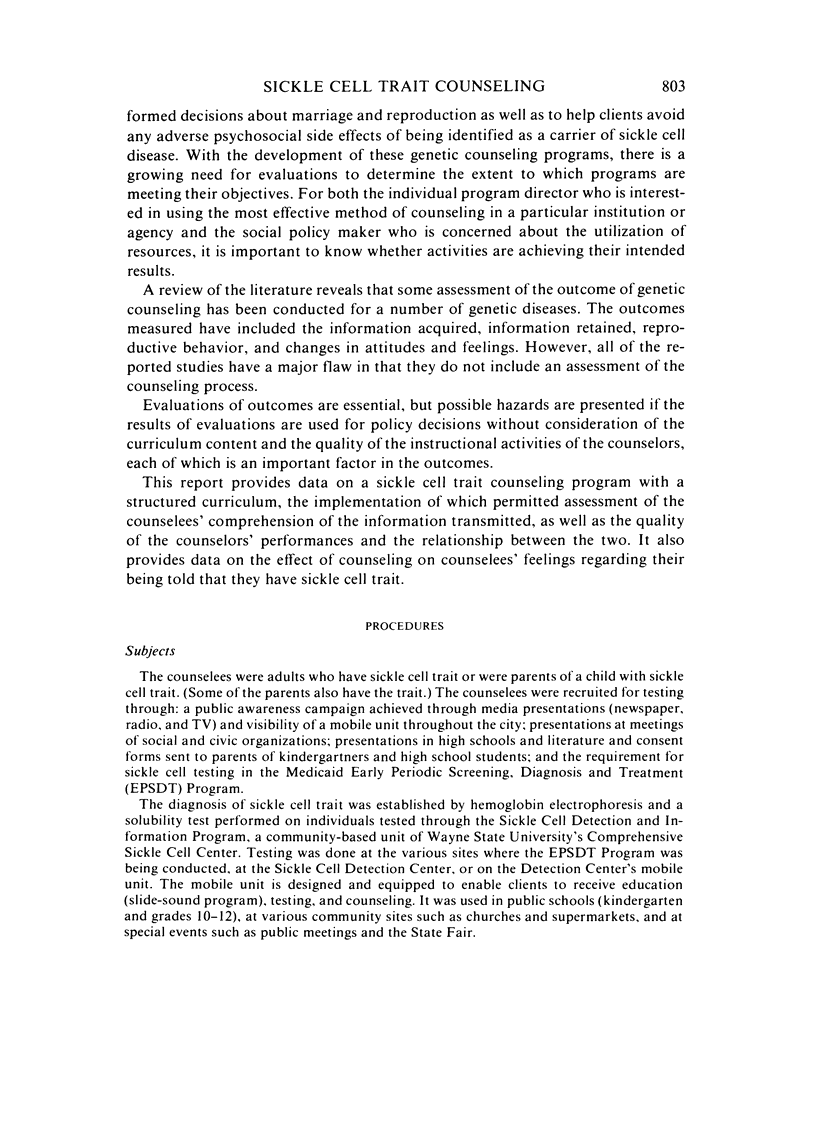
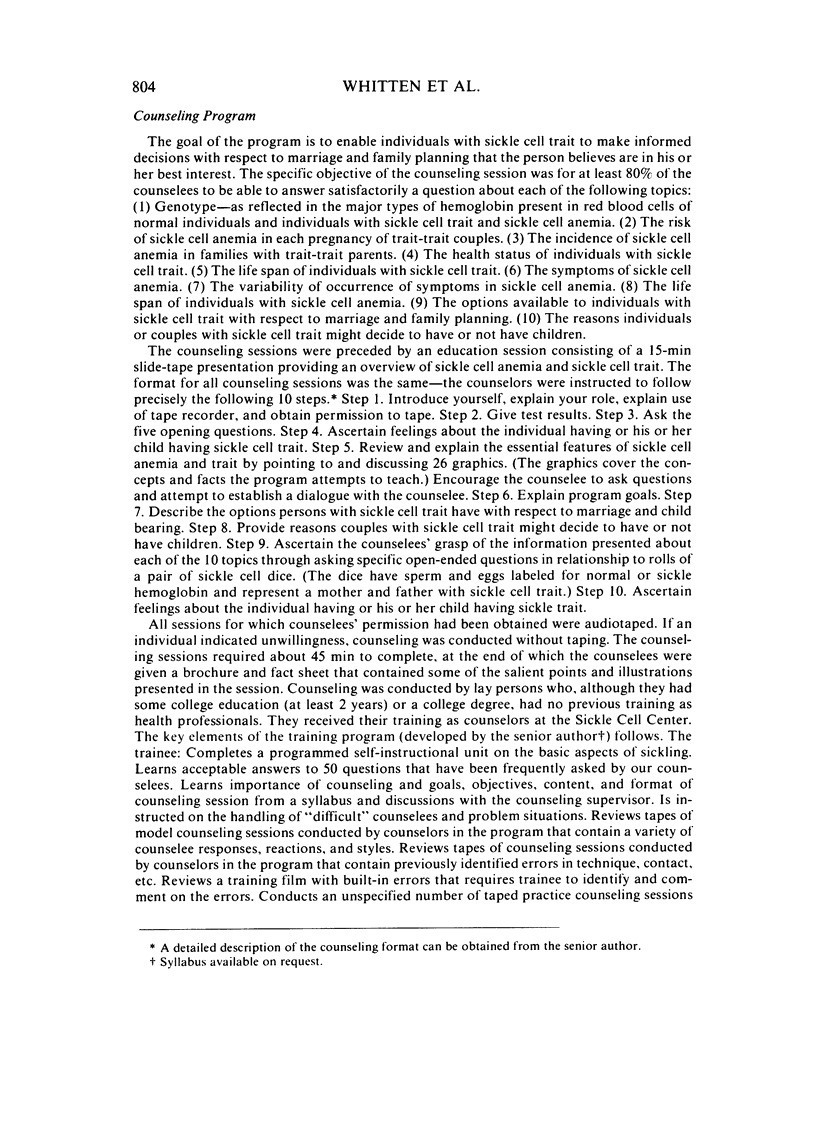
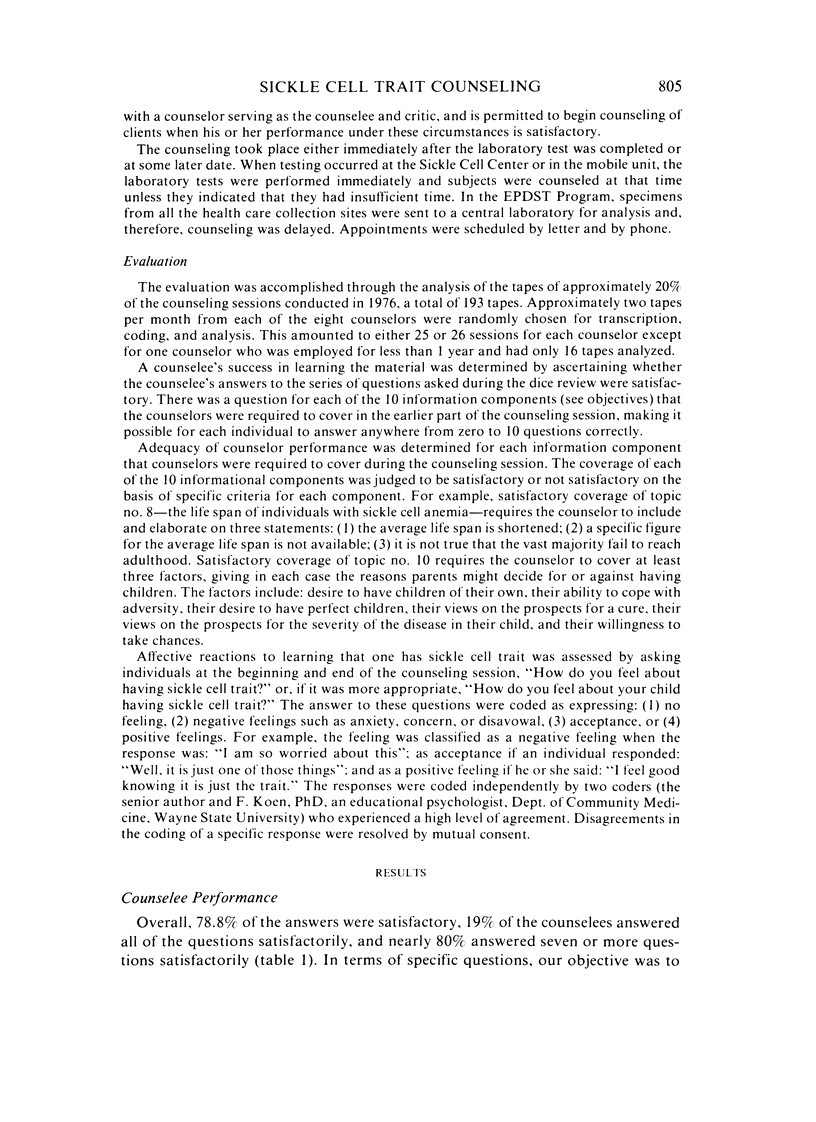
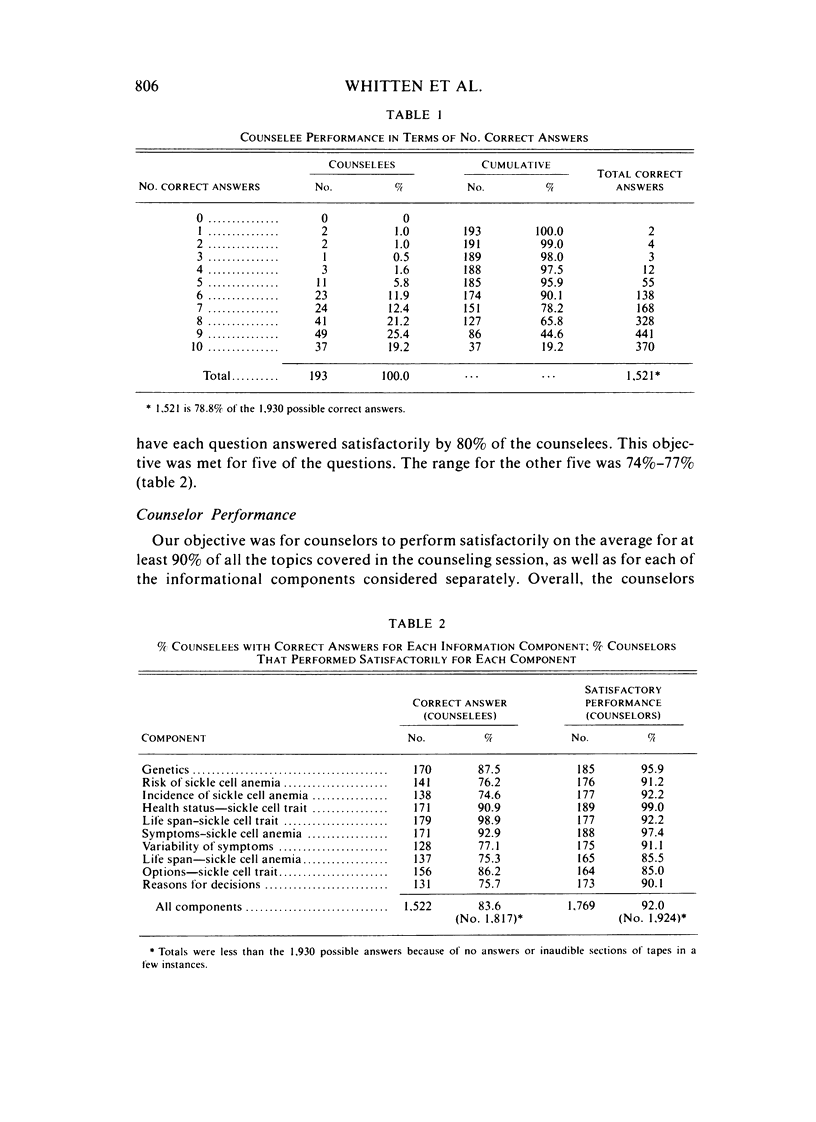
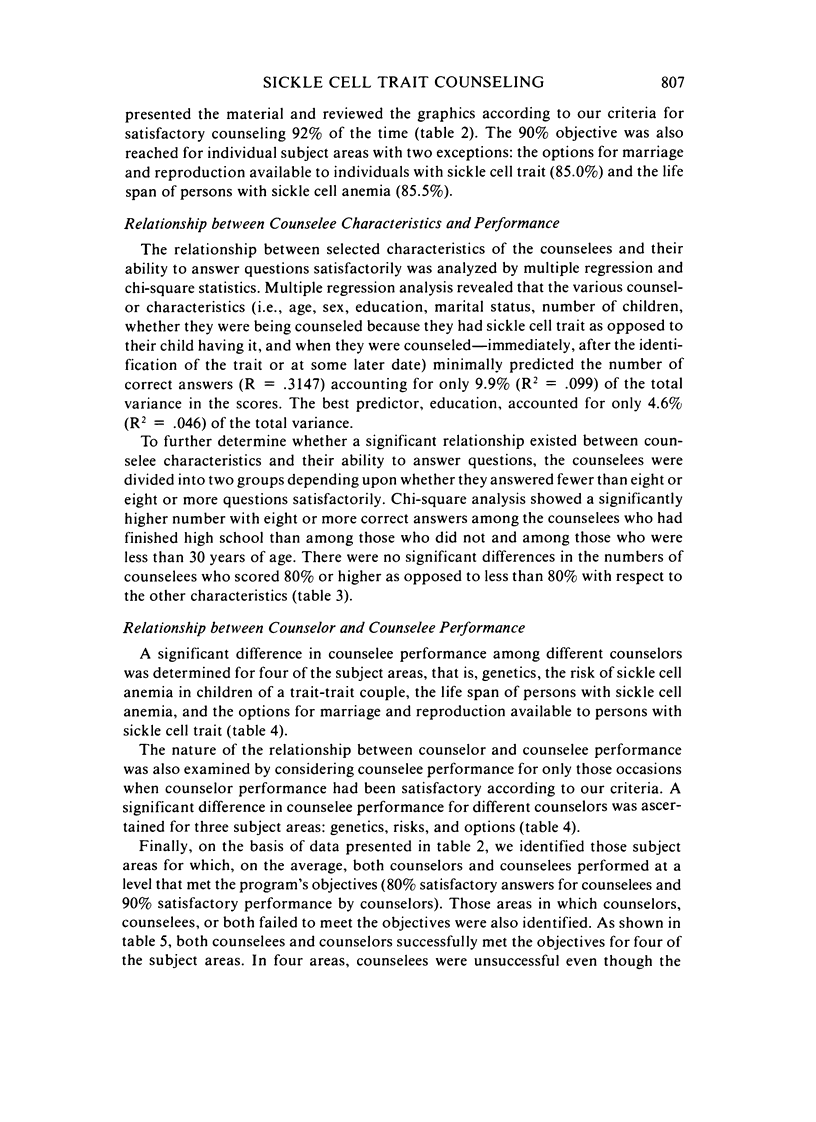
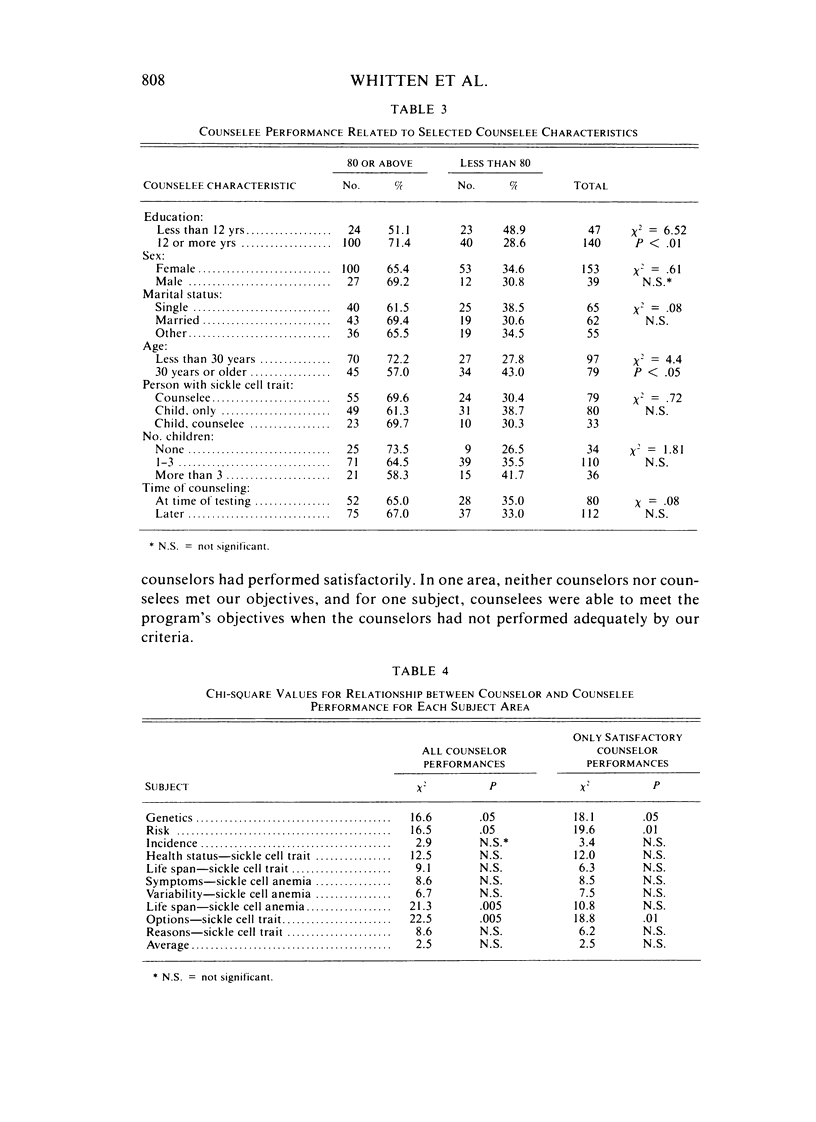
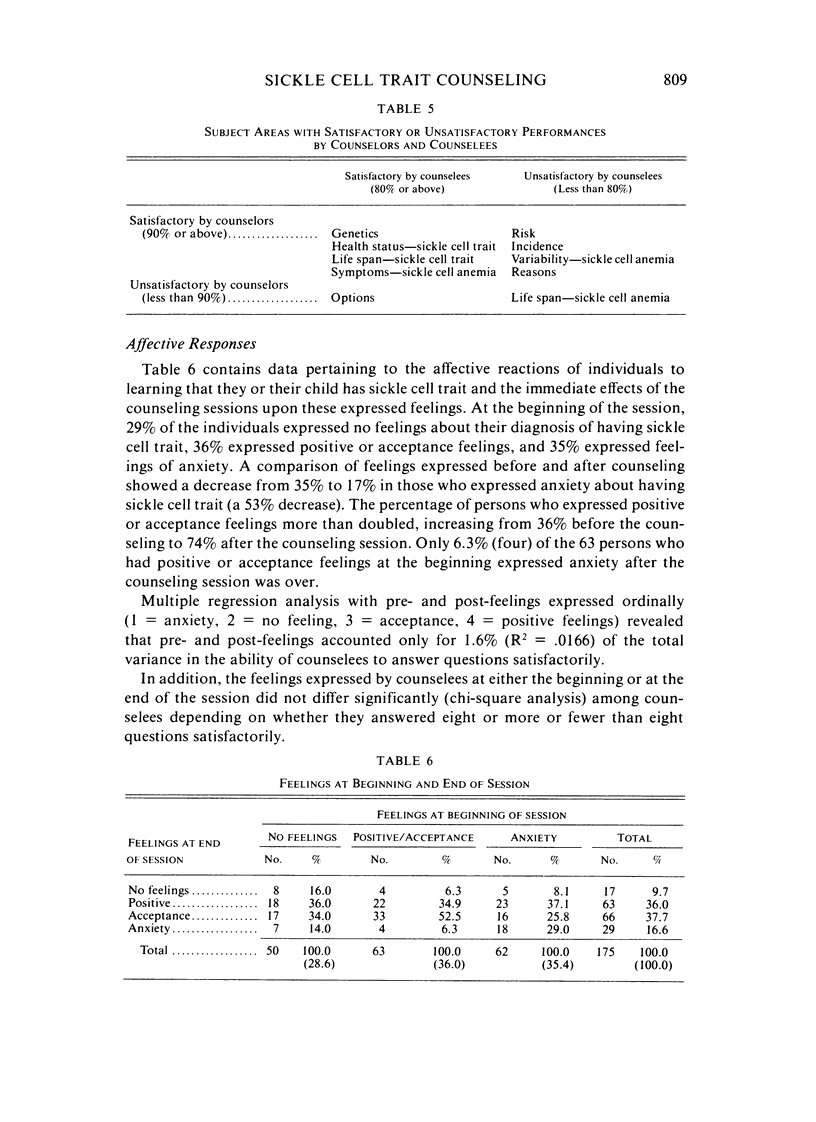
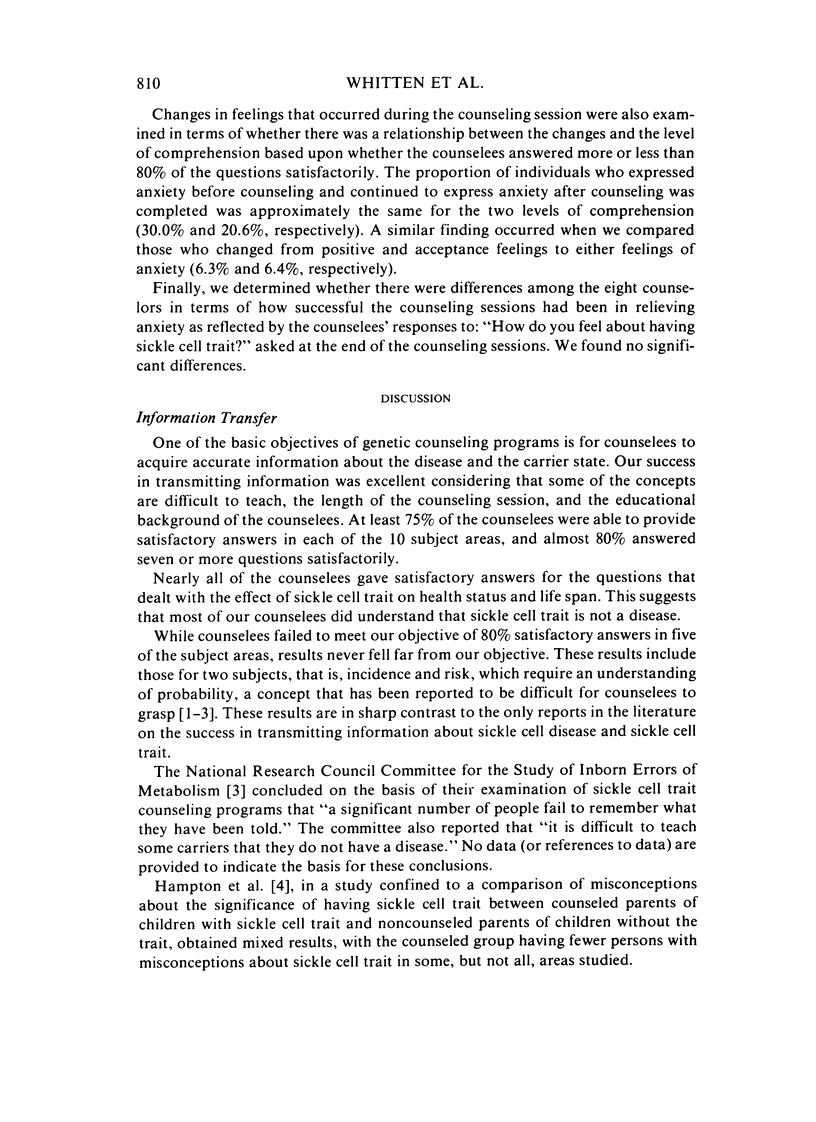
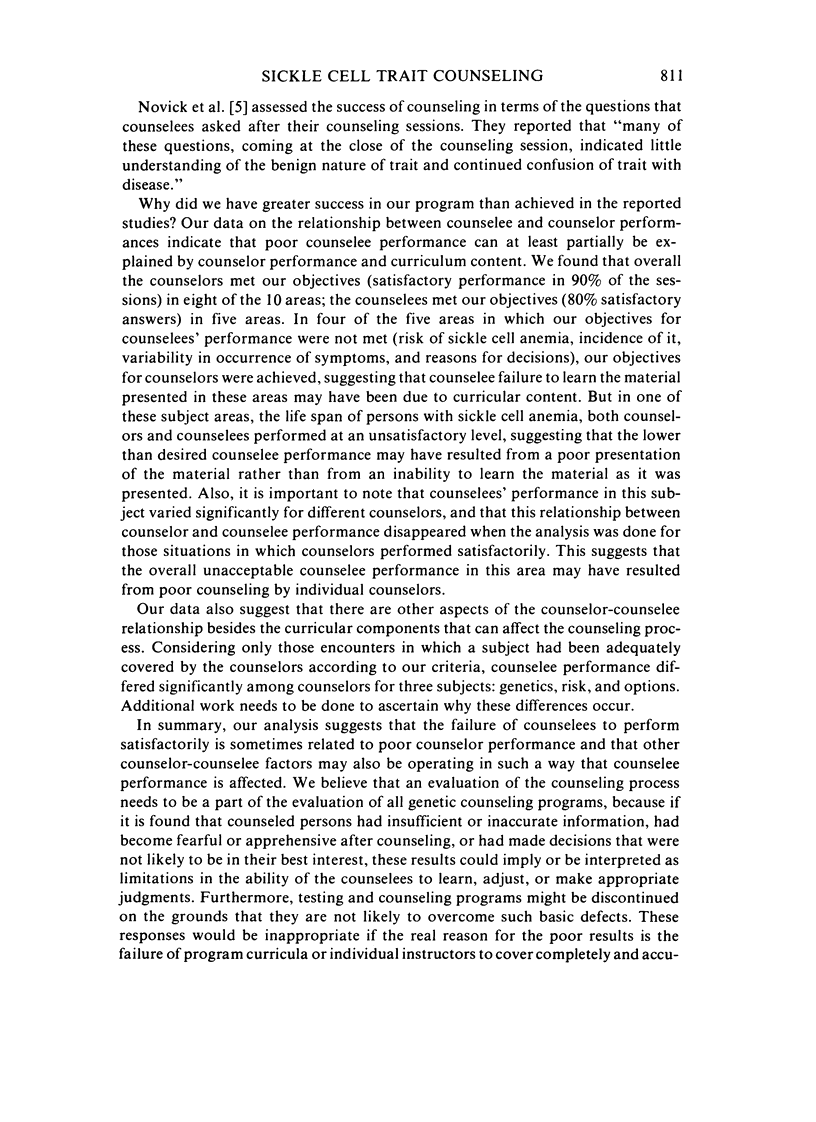
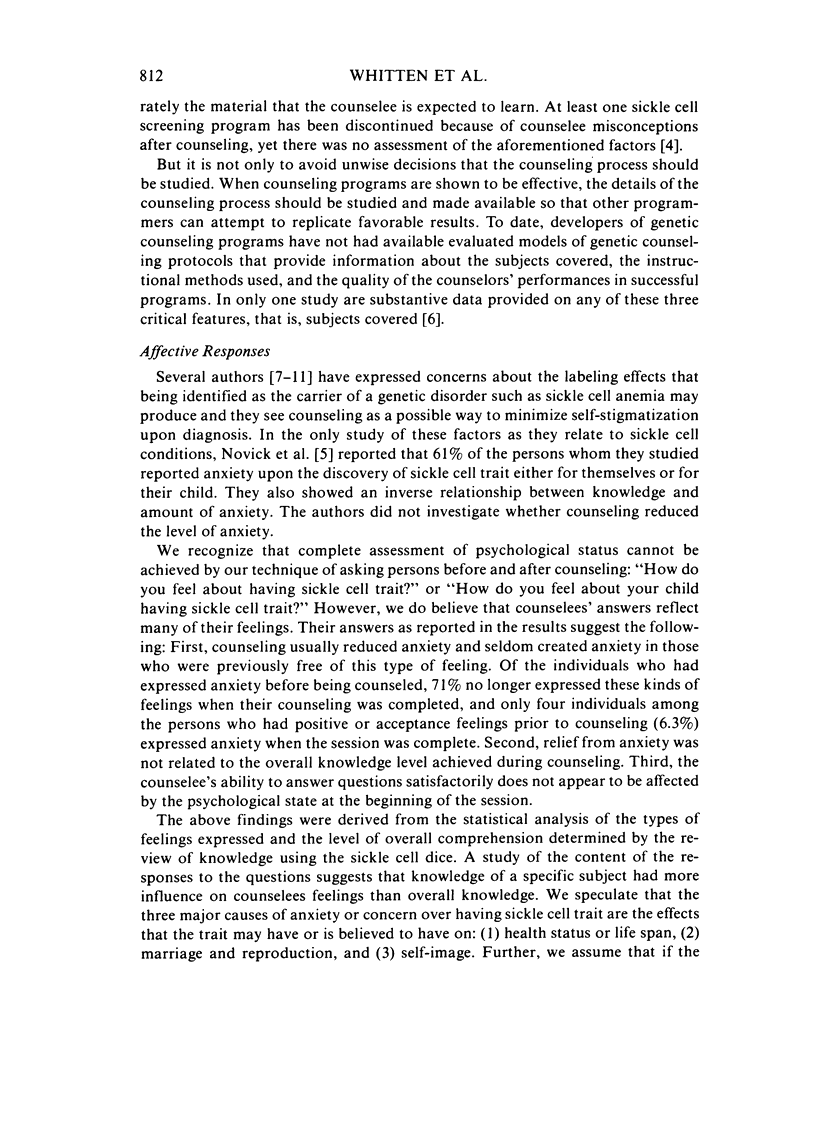
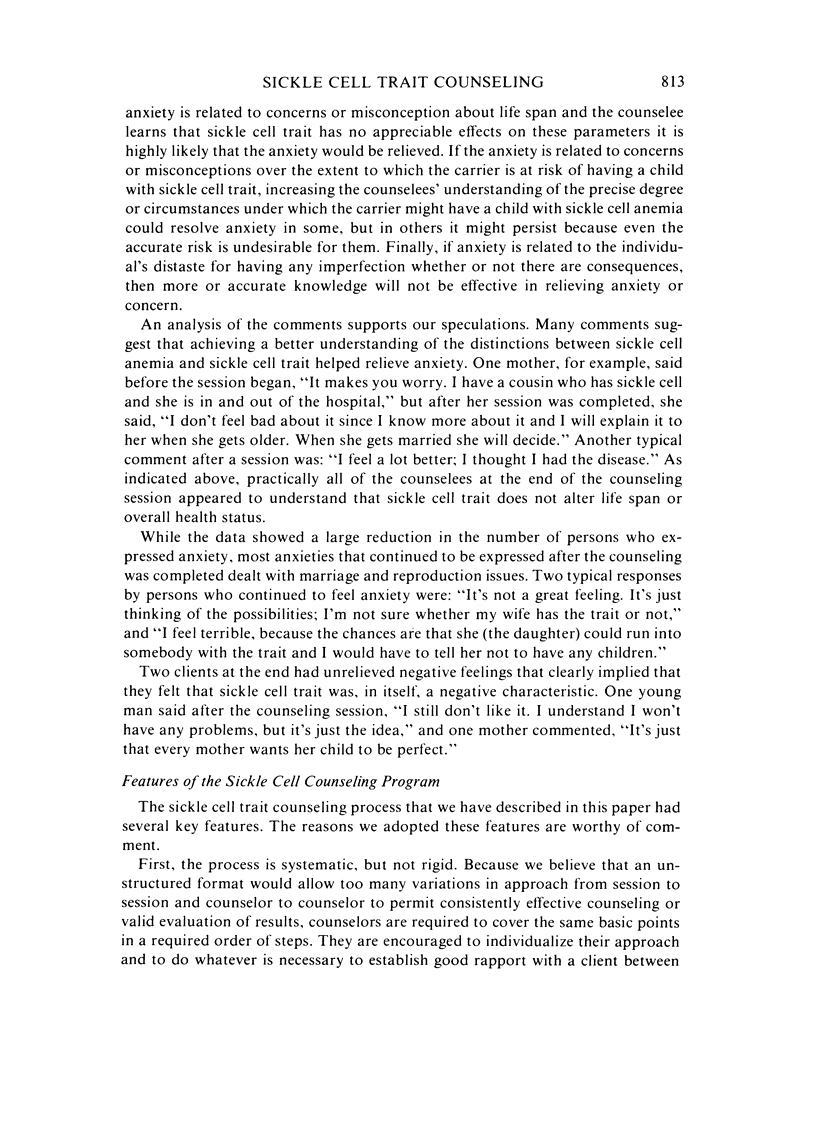
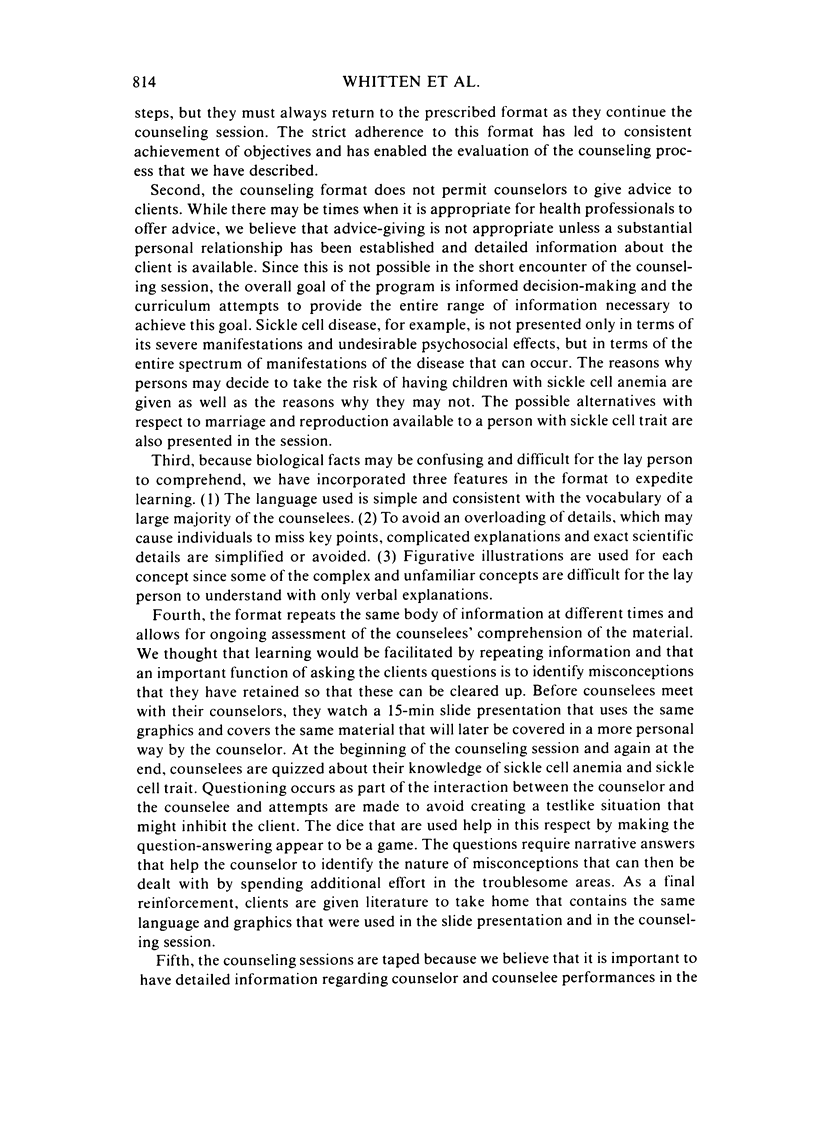
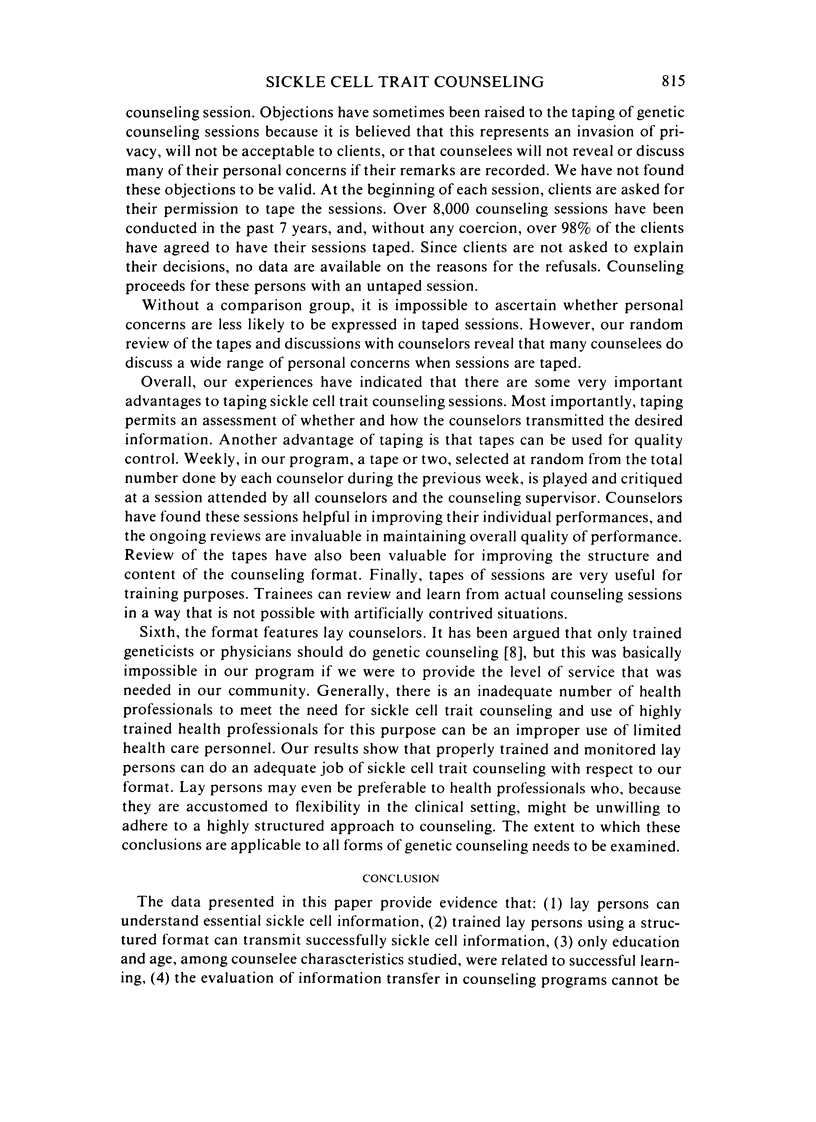
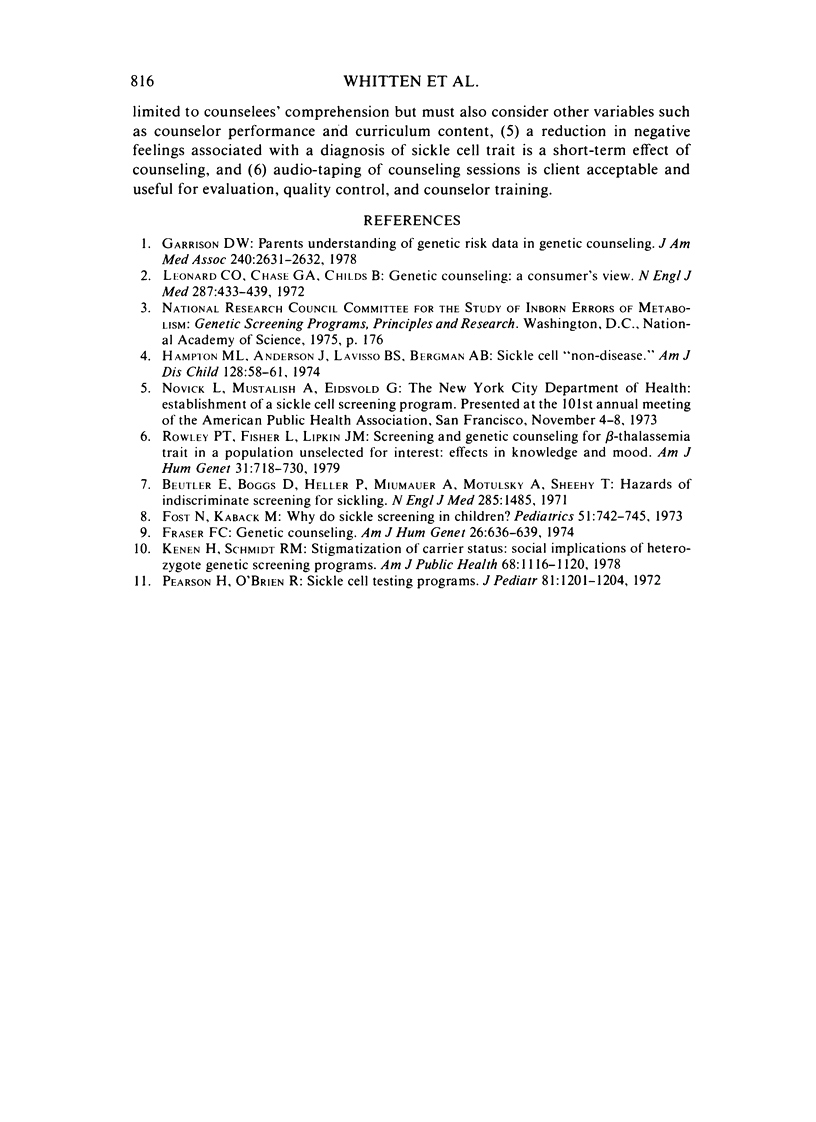
Selected References
These references are in PubMed. This may not be the complete list of references from this article.
- Beutler E., Boggs D. R., Heller P., Maurer A., Motulsky A. G., Sheehy T. W. Hazards of indiscriminate screening for sickling. N Engl J Med. 1971 Dec 23;285(26):1485–1486. doi: 10.1056/NEJM197112232852612. [DOI] [PubMed] [Google Scholar]
- Fost N., Kaback N. M. Why do sickle screening in children? Pediatrics. 1973 Apr;51(4):742–745. [PubMed] [Google Scholar]
- Fraser F. C. Genetic counseling. Am J Hum Genet. 1974 Sep;26(5):636–659. [PMC free article] [PubMed] [Google Scholar]
- Garrison D. W. Parents' understanding of genetic risk data in genetic counseling. JAMA. 1978 Dec 8;240(24):2631–2632. doi: 10.1001/jama.1978.03290240031012. [DOI] [PubMed] [Google Scholar]
- Hampton M. L., Anderson J., Lavizzo B. S., Bergmen A. B. Sickle cell "nondisease". A potentially serious public health problem. Am J Dis Child. 1974 Jul;128(1):58–61. [PubMed] [Google Scholar]
- Kenen R. H., Schmidt R. M. Stigmatization of carrier status: social implications of heterozygote genetic screening programs. Am J Public Health. 1978 Nov;68(11):1116–1120. doi: 10.2105/ajph.68.11.1116. [DOI] [PMC free article] [PubMed] [Google Scholar]
- Leonard C. O., Chase G. A., Childs B. Genetic counseling: a consumers' view. N Engl J Med. 1972 Aug 31;287(9):433–439. doi: 10.1056/NEJM197208312870904. [DOI] [PubMed] [Google Scholar]
- Pearson H. A., O'Brien R. T. Sickle cell testing programs. J Pediatr. 1972 Dec;81(6):1201–1204. doi: 10.1016/s0022-3476(72)80263-4. [DOI] [PubMed] [Google Scholar]
- Rowley P. T., Fisher L., Lipkin M., Jr Screening and genetic counseling for beta-thalassemia trait in a population unselected for interest: effects on knowledge and mood. Am J Hum Genet. 1979 Nov;31(6):718–730. [PMC free article] [PubMed] [Google Scholar]


